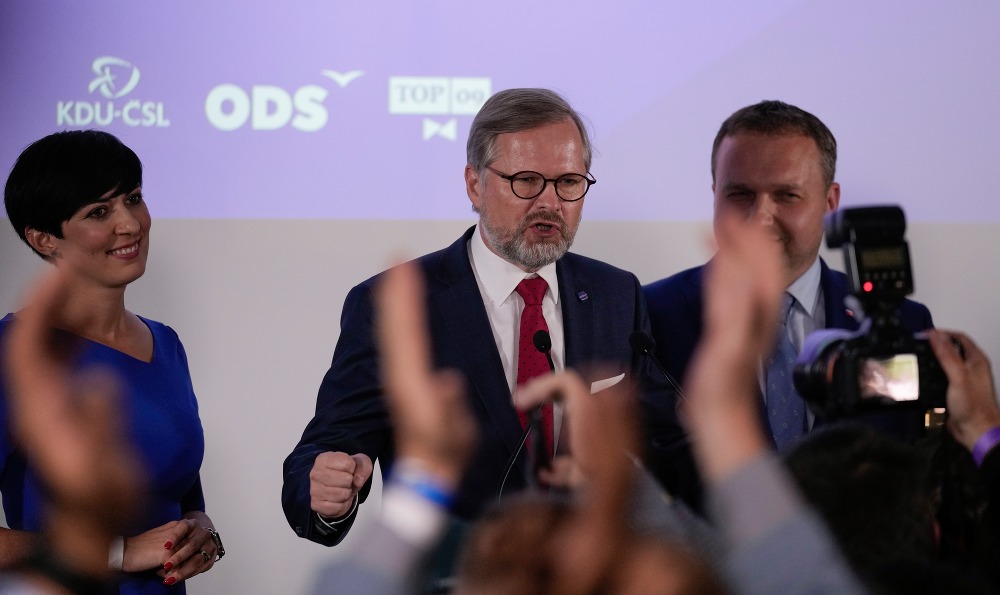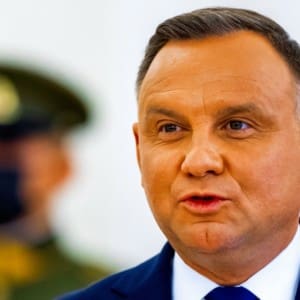Everything is pointing to the establishment of a fourth center-right government in the Visegrad Group following the recent parliamentary elections in Czechia. The SPOLU coalition received the most votes and is comprised of the right-wing Civic Democratic Party (ODS), the Christian Democrat-People’s Party union KDU-CSL, and the liberal-conservative TOP 09.
Even though a new government has not yet been formed, and the coalition agreement between SPOLU and the second election block (PirSTAN) has not yet been signed, the future ruling camp is being put under constant pressure by the liberal-left environments and media. They are demanding one thing: that Petr Fiala’s government decisively cut themselves away from Poland and Hungary’s policies and even distance themselves from the V4.
Such ideas are being fed to the Czech candidate for PM by several commentators. Particularly representative in this case is an article written by influential Left-wing writer Jiri Pehe for the news portal Referendum. In the article, Pehe explained that the new government must separate itself from Andrej Babis’ legacy (and therefore cease referring to the concept of national interest in foreign policy), change its approach towards the EU’s migration policy, and distance itself from Polish and Hungarian “nationalistic populism”. According to Pehe, this will improve Czechia’s allegedly damaged image on the international arena.
Although ODS is the strongest party, it is still only one of five in the upcoming coalition. The other four are not as enthusiastic about the V4.
The other government coalition group will be more inclined to heed these ideas – PirSTAN being comprised of the libertarian-left Pirate Party and the center Mayors and Independents party (STAN). A prominent representative of STAN Jan Farsky has stated, for example, that the V4 is overrated and does not contribute anything meaningful to Czechia’s policy apart from good relations with Slovakia.
Similar opinions can even be heard from SPOLU politicians such as Ondřej Benešík, who represents the KDU. Benešík is of the opinion that Czechs have played the role of useful idiots in the V4 by fighting for Hungary’s interests, and that such policy should come to an end.
The party most eager to cooperate with Poland is undoubtedly the ODS. The party’s leader Petr Fiala and his deputy Alexandr Vondra, when prompted to condemn Viktor Orban or Jarosław Kaczyński, responded that it is not their job to criticize the governments of other countries.
ODS has also often assured that the Visegrad Group is just as important to Czechia as NATO or the EU. Nevertheless, although ODS is the strongest party, it is still only one of five in the upcoming coalition. The other four are not so enthusiastic about the V4.
Petr Fiala’s position on this subject will be key, as he will most likely be the future PM of Czechia. Commentators have reminded that just prior to the elections, Viktor Orban visited Czechia to personally support Andrej Babis, whom he called his friend. In this situation, it will be difficult to forge a friendship between the leaders of ODS and Fidesz.
The issue of the Turów lignite mine is also resurfacing. Suggestions have been made towards Fiala to not back down and not reach an agreement with Poland. This counsel does not concern the ecology but rather the political consequences: the escalation of the conflict with Warsaw and weakening the V4.
For now, and in the case of all the matters that have been mentioned, Fiala resembles a sphinx: he is maintaining mysterious silence. This means that the time to reveal all the cards has not yet come – but it will have to happen sooner or later.





